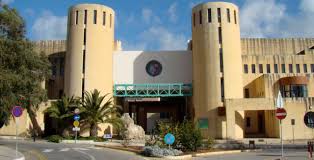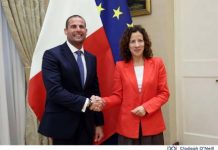The Faculty of Education expresses profound concern regarding the recent circular issued by the Directorate for Education, which imposes stringent limitations on educators’ participation in media appearances. As educational scholars and advocates for academic freedom, we view these restrictions as a troubling encroachment on educators’ fundamental right to freedom of expression – a right enshrined not only in democratic values but also in international human rights frameworks.
The role of education in a democracy is to foster critical thinking, inclusivity, and an unwavering commitment to the common good. At a time when democratic principles face unprecedented
This circular undermines educators’ role as exemplars of democratic values and active participation in society. When educators exercise their freedom of speech, they do more than express individual perspectives; they embody the very principles of active citizenship and democratic engagement they seek to instil in their students. In silencing teachers, education is prevented from fulfilling its role of nurturing critical minds central to a robust and thriving democracy.
The Faculty is particularly concerned about the implications of such restrictions on the discourse surrounding inclusive education, cultural responsiveness, and curriculum reform – areas where educators’ insights are invaluable. Silencing educators on these topics deprives the public of well- informed, experience-based perspectives and hampers the ongoing evolution of educational practice.
This policy presents an alarming precedent that may inadvertently stifle academic discourse, restrict educators’ engagement with the broader community, and ultimately undermine the common good that democratic education seeks to uphold.
In academia, the freedom to explore, critique, and discuss is fundamental. Restrictions on media appearances create a chilling effect, potentially deterring educators from engaging in meaningful scholarship and outreach due to fears of professional repercussions. Such constraints not only hinder educators’ rights but also negatively impact their capacity to influence and improve educational policy and practice, ultimately stifling innovation within the educational sector. By imposing restrictions on their public engagement, the circular devalues the critical role educators play in modelling democratic values and exercising rights that are foundational to a healthy, functioning democracy.
We urge the Directorate for Education to reconsider this circular and to foster a climate where educators feel empowered to share their expertise with society. Ensuring educators’ freedom of expression is paramount to sustaining a dynamic, reflective, and inclusive education system that benefits all. We are committed to advocating for policies that respect and uphold educators’ rights to contribute to public dialogue, advance knowledge, and advocate for equitable, informed, and forward-thinking educational practices that are essential to sustaining a democratic society.
Source: Prof Colin Calleja
Dean : Faculty of Education
University of Malta
![]()








